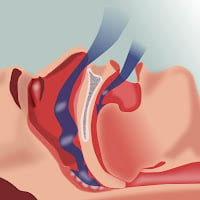The director of the George Washington University College of Medicine argues that the brain of an elderly person is much more plastic than is commonly believed.
At this age, the interaction of the right and left hemispheres of the brain becomes harmonious, which expands our creative possibilities. That is why among people over 60 you can find many personalities who have just started their creative activities.
Dementia Books & Videos on Amazon:
FREE Newsletter:
Of course, the brain is no longer as fast as it was in youth. However, it wins in flexibility. That is why, with age, we are more likely to make the right decisions and are less exposed to negative emotions. The peak of human intellectual activity occurs at about 70 years old, when the brain begins to work at full strength.
Over time, the amount of myelin in the brain increases, a substance that facilitates the rapid passage of signals between neurons. Due to this, intellectual abilities are increased by 300% compared to the average.
And the peak of active production of this substance falls on 60-80 years of age. Also interesting is the fact that after 60 years, a person can use 2 hemispheres at the same time. This allows you to solve much more complex problems.
Professor Monchi Uri from the University of Montreal believes that the brain of an elderly person chooses the least energy-intensive path, cutting unnecessary and leaving only the right options for solving the problem.
A study was conducted in which different age groups took part. Young people were confused a lot when passing the tests, while those over 60 made the right decisions.
Now let’s look at the features of the brain at the age of 60-80. They are really rosy.
Features of the brain of an elderly person
- The neurons of the brain do not die off, as everyone around them says. Connections between them simply disappear if a person does not engage in mental work.
- Absent-mindedness and forgetfulness appear due to an overabundance of information. Therefore, you do not need to focus your whole life on unnecessary trifles.
- Beginning at the age of 60, a person, when making decisions, uses not one hemisphere at the same time, like young people, but both.
- Conclusion: if a person leads a healthy lifestyle, moves, has a feasible physical activity and has full mental activity, intellectual abilities DO NOT decrease with age, but only GROW, reaching a peak by the age of 80-90 years.
More happy information
A large study in the United States found:
- The most productive age of a person is from 60 to 70 years;
- The 2nd most productive human stage is the age from 70 to 80 years old;
- 3rd most productive stage – 50 and 60 years old.
- Before that, the person has not yet reached his peak.
- The average age of the Nobel Prize laureates is 62;
- The average age of the presidents of the 100 largest companies in the world is 63 years;
- The average age of pastors in the 100 largest churches in the United States is 71;
- The average age of dads is 76 years.
- This confirms that a person’s best and most productive years are between 60 and 80 years of age.
- This study was published by a team of doctors and psychologists in the NEW ENGLAND JOURNAL OF MEDICINE.
- They found that at 60 you reach the peak of your emotional and mental potential, and this continues until you are 80.
- Therefore, if you are 60, 70 or 80 years old, you are at the best level of your life.
So don’t be afraid of old age. Strive to develop intellectually.
Learn new crafts, make music, learn to play musical instruments, paint pictures! Dance!
Take an interest in life, meet and communicate with friends, make plans for the future, travel as best you can. Don’t forget to go to shops, cafes, concerts.
Do not lock yourself alone – it is destructive for any person. Live with the thought: “All the good things are still ahead of me!”
SOURCE:











